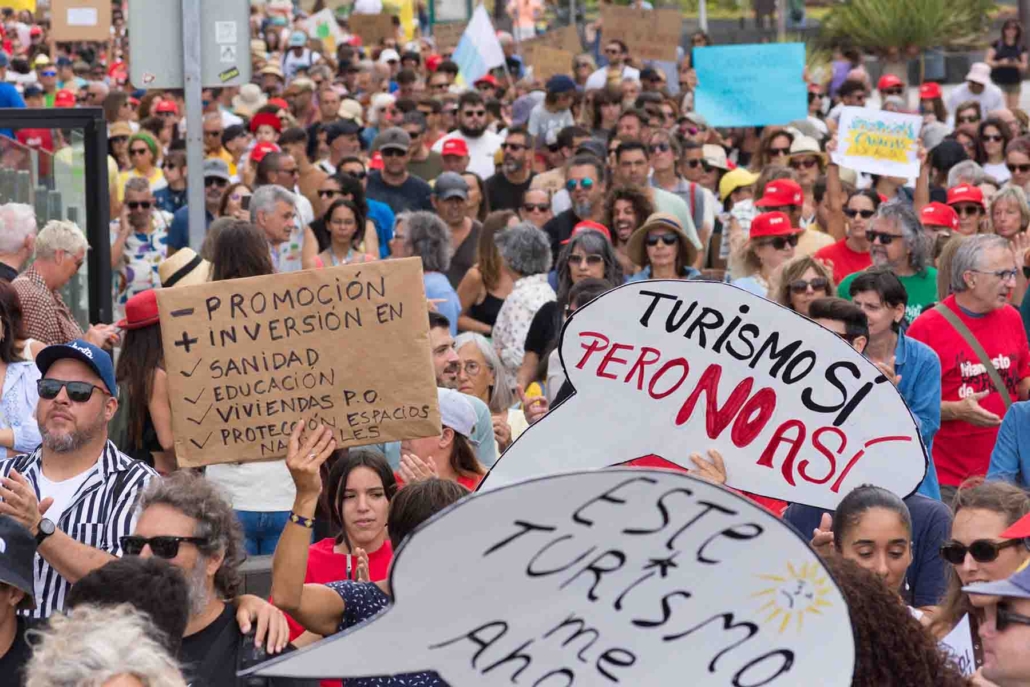Spain is one of the most popular travel destinations in the world. From beautiful beaches to historic cities, there’s so much to explore. But did you know Spain also faces a big problem because of its popularity? It’s called overtourism, and it’s causing issues for both locals and the environment. Let’s dive into overtourism, why it’s happening in Spain, and the emerging protests.
What is overtourism?
Overtourism happens when too many tourists visit a destination simultaneously, overwhelming local infrastructure and negatively impacting the environment and the lives of local people. This has been a growing issue in popular cities and regions in Spain, like Barcelona, Madrid, and the Balearic Islands (Mallorca, Ibiza, and Menorca).
Causes of overtourism in Spain
Spain attracts millions of visitors every year for several reasons:
- Affordable Travel: Thanks to low-cost airlines, cheap flights from all over Europe make Spain an easy and affordable getaway. Add to that the availability of short-term rentals through platforms like Airbnb, and you have a recipe for massive numbers of tourists pouring into popular cities.
- Famous Landmarks and Beaches: Spain is known for its historic sites, such as the Sagrada Familia in Barcelona, the Alhambra in Granada, and the bustling streets of Madrid. Tourists flock to these cities to see these landmarks. The country’s stunning Mediterranean beaches also draw in millions, especially during summer.
- Cruise Ships: Many of Spain’s coastal cities, particularly Barcelona, are popular stops for huge cruise ships. These ships bring in thousands of visitors each day, often overwhelming the cities for a short period before they leave.
- Year-Round Tourism: Spain has a warm climate, so tourism isn’t just seasonal. Cities like Barcelona and Madrid attract visitors yearly, which keeps tourist numbers consistently high.
Effects of overtourism
The massive influx of tourists in Spain has led to several problems:
- Pressure on Public Services: With so many visitors, public services like transport, sanitation, and healthcare are strained. Local residents often feel their cities are overcrowded and not designed to handle such large numbers.
- Damage to the Environment: Spain’s natural landscapes, especially the beaches, suffer from the effects of over-tourism. Pollution, litter, and damage to natural habitats are common, particularly on the Balearic Islands.
- Housing Issues: Short-term rental platforms like Airbnb have made it more profitable for property owners to rent to tourists rather than locals. This has led to a shortage of affordable housing for residents, especially in cities like Barcelona and Madrid.
- Cultural Impact: Many locals feel like their cities are losing their traditional character due to the overwhelming presence of tourists. In some cases, souvenir shops and restaurants catering to tourists have taken over entire neighbourhoods, pushing out local businesses.
Recent Protests
Over the past few years, many locals in Spain have become frustrated with the impact of overtourism, and protests have broken out in several cities.
- Barcelona: This city has been at the centre of the protests. With around 30 million visitors annually, Barcelona’s narrow streets and historic sites are often packed with tourists. Locals have staged protests, calling for stricter regulations on tourism, including limits on cruise ships and Airbnb rentals.
- Mallorca and Ibiza: The Balearic Islands are another hotspot for protests. Residents have voiced concerns over the environmental damage caused by mass tourism and the high cost of living due to a housing shortage. In response, the local government has implemented some restrictions, such as reducing the number of beds available for tourists in hotels and short-term rentals.
- Venice-Style Measures: In response to the protests, some cities, like Barcelona, have begun to take steps similar to Venice’s, such as limiting the number of tourists entering certain areas and charging fees for entering the most visited sites. These measures are designed to make tourism more sustainable and lessen its negative impact on daily life for residents.
Did you know?
Barcelona’s famous La Rambla street sees more than 200,000 tourists on busy days, making it almost impossible for locals to enjoy their own city!
What’s Being Done?
Spanish authorities are working on finding solutions to manage the issue of overtourism. Some measures include:
- Tourist Taxes: In places like the Balearic Islands, visitors are charged a tourist tax, which helps fund environmental and conservation projects.
- Limiting Short-Term Rentals: In cities like Barcelona, the government has introduced strict regulations on short-term rentals to prevent housing shortages for locals.
- Spreading Tourism: Spain is trying to promote lesser-known regions to spread out tourists more evenly across the country, reducing pressure on popular destinations.
Overtourism in Spain is a serious issue, but steps are being taken to manage it. Tourists should be aware of the impact their travels can have on local communities and the environment. By respecting and following local guidelines, tourists can still enjoy all that Spain has to offer while helping preserve its culture, cities, and landscapes for future generations.


